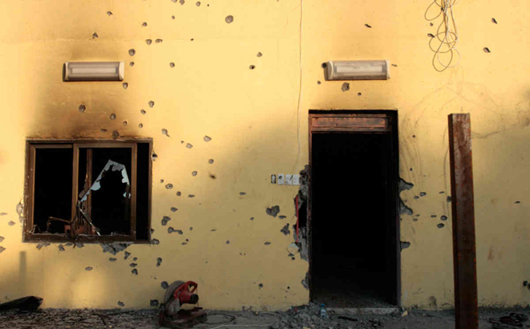
Jeddah, Dec 21: Saudi security forces killed four terrorists in a clash in the Awamiyah region on Saturday, according to the Interior Ministry.
The troops raided a terrorist hide-out in Awamiyah town and killed the four in an exchange of fire.
The dead were behind the killing of a member of the security forces and wounding of another last Sunday, a ministry spokesman said, quoted by the SPA.
They included the leader of the terrorist gang, it said.
A high-ranking security officer and several terror suspects were injured in the operation in the Qatif governorate area.
Ali Abdullah, a wanted terrorist, was gunned down in the shootout with security officers who surrounded a hide-out of terror suspects and wanted criminals in a district near Awamiyah.
The officer, who sustained bullet wounds in the operation, was admitted to hospital in Dammam and is now in stable condition.
Abdullah is wanted for the murder of Abdul Aziz Al-Asiri, a security officer.
The other terrorists killed in the operation are Abdullah Al-Maddad, Rida Al-Bandari and Hassan Al-Meslab.
Al-Maddad is wanted for throwing petrol bombs at police vehicles, according to the report.
Maj. Gen. Mansour Al-Turki, spokesman for the Interior Ministry, said terrorists shot at Abdul Rahman Al-Asiri while he was discharging his duty in Nasirah district near Awamiyah last Sunday evening.
He said police raided the terrorist hide-out on Saturday morning after tracking down the killers with public support.
The terrorists opened fire at the security team during the encounter and the four men including the mastermind of Al-Asiri’s murder were killed in the shootout, he said.




Comments
Add new comment